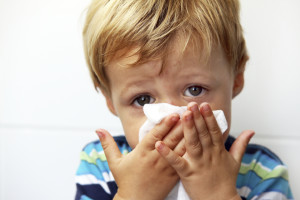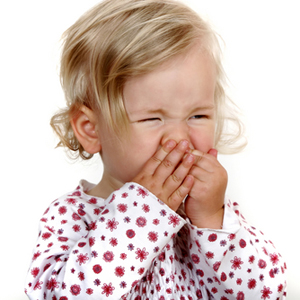 You have read about or heard about children having allergic reactions to different foods and you probably know of at least one case at the local school where some child was rushed to the emergency in anaphylactic shock. It is scary and you are afraid that your child might one day be one of those poor children. Of course you want to prevent that from happening, but how will you know if your child has an allergy? Should you prevent your child from eating peanuts, or eggs or cereal? Or should you just treat children like children and assume they have no allergies until proven otherwise.
You have read about or heard about children having allergic reactions to different foods and you probably know of at least one case at the local school where some child was rushed to the emergency in anaphylactic shock. It is scary and you are afraid that your child might one day be one of those poor children. Of course you want to prevent that from happening, but how will you know if your child has an allergy? Should you prevent your child from eating peanuts, or eggs or cereal? Or should you just treat children like children and assume they have no allergies until proven otherwise.
The symptoms of an allergy
The first thing to do is know what the symptoms of allergies are in children in order to know if they had one or not. Yet, you may find it is not as easy as it sounds. You would be looking for a runny nose, stuffy or blocked nose, coughing, wheezing, rashes, and redness in the face. The trouble is these same symptoms could also be the result of a common cold, or normal childhood diseases. How are you going to know the difference?
For one thing you are going to be in contact with your child’s pediatrician who will provide an expert medical opinion, which is going to make your job a lot easier. However, it goes without saying that you have to notice these symptoms in the first place in order to set up an appointment for your child to see the doctor.
 Some tips to look for
Some tips to look for
Although not true in all cases, many children suffering from allergies have a wan or pale complexion, which is a condition, called white dermatographism. The condition can also occur when the child has been scratching and a welt has formed. The welt is pale with a red flare on each side. Therefore, if you notice the child has been scratching and has weld, or the child may look rather peakish most of the time changes are it could be a sign that he or she may have some kind of allergy. Children with dermatographism may be smaller than other children in their age group as well.
You will also notice that your child always appears tired, with darkening (dark circles) around the eyes. This condition is called allergic shiners, and like the name implies the eyes have a dark bluish color resembling the beginning of a black eye. This condition is due to increased blood flow near the sinuses.
Children with allergies tend to have an extra skin fold or line under their bottom eyelids. These lines are known as Denni-Morgan lines. These lines will sometimes look like wrinkles.
 Long face syndrome happens to some children who suffer from asthma or nasal allergies. Some children will have upper teeth that protrude and a high-arched palate. The kids will have trouble breathing out of the mouths.
Long face syndrome happens to some children who suffer from asthma or nasal allergies. Some children will have upper teeth that protrude and a high-arched palate. The kids will have trouble breathing out of the mouths.
The classic itchy nose is a sign of an allergy. Children with itchy noses will exhibit what is called the nasal salute. Children who frequently get these itchy noses have a special way of rubbing their noses, which looks like a salute. They take the palm of their hand and rub their nose in an upward and outward motion.
Dry rough skin is a sign of an allergy; children can be particularly prone to eczema, especially around their arm chest and cheeks. This kind of skin condition is called xerosis.
Glue Ear is condition caused by nasal allergies where the child seems to have difficulty hearing, doesn’t respond when you talk to him or her, and has a poor attention span.
Postnasal drip is common in all children, but if your child’s postnasal drip is chronic and is accompanied by bouts of coughing this also could be a sign of an allergy.
If you notice that your child is always making funny faces, wrinkling his or her nose or twitching a lot, your child is displaying of the ways young children try to scratch the itch they feel in their noses. Unfortunately some of these children could go on to have facial tics in later life.
If you notice these strange behaviors do take your child to the doctor for allergy testing, even if you do not notice the usual signs of allergies, it is best your child’s pediatrician run some tests and find out. That way you will be able to rest assured that your child’s health is being taken care of.
Related Posts
Related Articles
